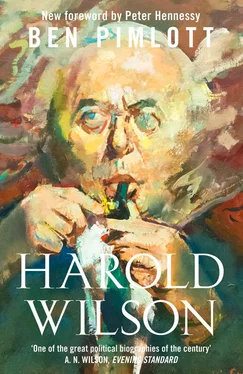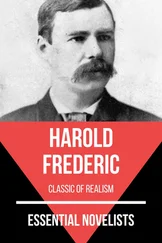At the end of his first academic year, with Schools (Oxford’s final exams) not yet on the horizon, he set his sights on winning University prizes. Thomas, his room-mate, decided to put in for the Stanhope Historical Essay Prize; Harold had a shot at the Cecil Peace Prize, submitting an essay on the private manufacture of armaments, a set topic. He was unsuccessful. Before he had received this result, however, his tutors had encouraged him to consider competing for another accolade. ‘I’m definitely supposed to be going in for the Gladstone’, he wrote home in May 1936, ‘– and have been reading up some railway history.’ 73His target was the Gladstone Memorial Prize, worth £100. He started to prepare a long, carefully researched and annotated paper on ‘The State and Railways 1823–63’. This combined several areas of interest: nineteenth-century politics, economics, and the Seddon family industry. The project took nearly two terms to complete, and eclipsed almost every other non-work activity. In the end, even running took second place.
He was content. More than that, he was happy – and never happier than when he was alone with his books. Helping to sustain his happiness, meanwhile – and enabling him to ignore Oxford’s many distractions – was the girl he had met at the Brotherton’s tennis club. After their first meetings, Harold had written to Gladys from Boy Scout camp. Then he had disappeared to Oxford, while she had remained at her office stool. But they kept in touch. ‘When Harold went up to Oxford we wrote to each other constantly,’ she recalls. 74Their letters to each other were not kept. Gladys, however, figures in almost every letter from Harold to his parents. He seldom used her Christian name, as if to do so would be over-familiar – even embarrassing, giving away too much about himself. He stuck to her initials. But she was nearly always there. He had a consistent purpose: to get his mother and father to see as much of Gladys Baldwin as possible, and bring her to Oxford whenever they could.
Since going up, Harold had one important thing in common with Gladys: both of them were living away from home. She, too, frequently felt lonely. ‘How’s G.B. going on?’ became Harold’s familiar refrain. 75Fond thoughts about ‘G.B.’ and nostalgia for the Wilson family hearth were closely linked. He tried to make light of things. ‘Do you ever see G.M.B. (Stanley’s niece)?’ he asked in an early letter. ‘How many walk her home from chapel? Why not give her a lift home some night? It will help to preserve the link. I believe she was going to the dance at Highfield last Thursday. Don’t forget about the lift home now & again; it’s a good idea. Let me know all the news about her as well as about everybody else.’ He added, almost mournfully: ‘I’m looking forward to Xmas, partly because the confounded exam will be over by then, but also because it will be nice to come home again.’ 76
Herbert and Ethel were obliging, happy to play the part of surrogate parents to their son’s girl, a role for which she was grateful. They had her round. ‘Got a letter from G.B. this a.m.,’ Harold wrote in February 1935. ‘She wasn’t ill, she’s been working very late. Evidently she was very fed-up last weekend – homesick, & that is why she went to see you. She said she felt a lot better after it … Her pa’s preaching at Chester. Are you going to ask them along for an evening?’ 77A few days later, he wrote again: ‘Thanks for taking G B. out. I’m glad you did, because evidently she’d been feeling fed-up and homesick etc. the previous week. However she has the tennis dance on Mar. 2nd & her people are coming on the 9th so she should be OK now.’ 78He did not let the matter rest. ‘Will you see the Baldwins next week?’ he urged at the beginning of March. 79His parents responded with an invitation.
On his nineteenth birthday, to Harold’s intense pleasure, Gladys sent him a pen-and-pencil set. It was mid-term: he could not go to the Wirral. He decided to engineer a family visit to Oxford. His room-mate, Thomas of Tenby, had recently been in hospital for an appendicectomy. Illness, it occurred to Harold, was something that made parents concerned about their offspring, and even wish to see them. He developed stomach pains. ‘I wish you could come up next weekend, if at all possible – it would make things a lot easier – esp. re my tummy,’ he wrote. ‘If you could come –’, he added with even greater ingenuity, ‘it would make it a lot easier to settle down & work for the rest of the term … please come next weekend if at all possible (& bring G.B.). Remember me to G.B. if you see her at tennis, or anywhere – she probably won’t be down to tennis much as it’s her overtime etc. this week.’ 80The ploy was successful: the visit took place, the first of several with Gladys in the car, generally after some campaigning by Harold. Whenever his parents planned a trip to Oxford, Harold asked if they could bring ‘G.B.’
‘Hope G.B.’s getting on OK, thanks for “looking after her” last week,’ Harold wrote in May, beating a by now familiar drum. ‘And will you also please pay my tennis club subscription this week, so that I’m on the list of members in good time.’ 81It was a joyous summer, back in the Wirral, with Gladys, the Brotherton’s club, and tales of Varsity life to tell. There was also a twinkle of ambition. That October, Harold returned to Oxford for his second year, refreshed, and with his eyes fixed on an immediate goal. He went to lectures and visited the Iffley track. He also read up about railway history. When running fixtures ceased in November, he threw himself into his research. ‘I haven’t any news as I’m spending all my time on the Gladstone just at present,’ he wrote.
Harold barely noticed the general election on 14 November, at which Labour – led by a hitherto obscure MP called Clement Attlee – staged a modest recovery. He joined fellow undergraduates at the Oxford Union, to hear the results read out as telegrams came through. His interest in them, however, was largely parochial. ‘Fancy that wet Marklew getting in, and that hopeless Mabane’, he wrote, ‘– but he only had Pickles of Crow Lane School against him.’ Ernest Marklew was a Grimsby fish merchant, who won the Colne Valley division for Labour; W. Mabane was the sitting Liberal National MP for Huddersfield. Harold was pleased by the victory in one of the Oxford University seats of the author and barrister A. P. Herbert, standing as an Independent, who defeated a man called Cruttwell: ‘very unpopular – a snob’, wrote Wilson. In his current, Oxford-enhanced, scale of values, social snobbery was one of the worst sins. 82That the Liberals lost ground badly does not seem to have bothered him greatly.
During the Christmas vacation he continued his researches at the Picton Library in Liverpool, consulting Government Blue Books and volumes of Hansard, for parliamentary debates. Back in Oxford, he did not let up. ‘The Gladstone is dragging on: I’m more or less in sight of the end of it,’ he wrote at the end of January. 83His attention was diverted by the triumph of one of his lecturers. ‘Have you heard about Crossman?’ he asked his parents rhetorically – it was unlikely that they had. ‘At New College the Sub-Wardenship circulates among the fellows, & this year it is Crossman’s turn. As H. A. L. Fisher (Warden) is off for six months, Crossman (aged 26) is acting warden for the year!!!’ 84It was difficult to imagine a more dizzying achievement. Compared with this, Harold’s own efforts seemed mundane: but he pressed on. Early in March he handed in his paper, which he had paid to have professionally typed. ‘Into the unsettled England of the eighteen twenties the locomotive burst its way,’ it began, ‘heralding the new industrial order of which it was to form so important a part.’ While he waited anxiously for the result, he speculated about the length of his bibliography, and about tales of previous, streetwise, contestants who had hoodwinked the assessors by listing large numbers of books they hadn’t read. 85
Читать дальше











